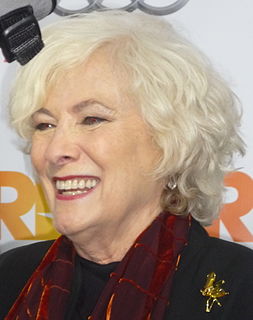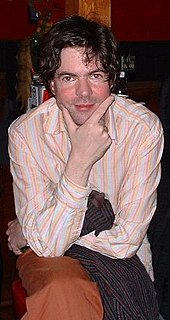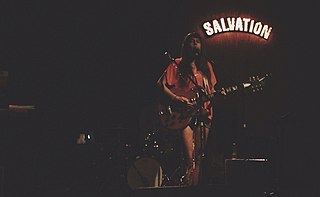A Quote by Chris Cornell
Soundgarden signing to a major, then Mother Love Bone, and seeing the same happen to Alice in Chains. We were all suddenly making music and recording at the same time, and we had money to do it. It wasn't like a $2,000 recording that you do over a weekend. It's like, 'Wow, maybe this will be our job.'
Related Quotes
Over a year before I started recording Salad Days, so I finally sat down and was like I have to do this. And it did feel like a chore. I was looking at it in a completely wrong way, trying to one up myself. Just the typical sophomore album bullshit. The main thing I got out of it is I eventually gave up on all that stuff. I had to re-learn why I liked making music in the first place, why I liked recording in my room all the time. Because it's fun. It's fun for me.
If you are recording, you are recording. I don't believe there is such a thing as a demo or a temporary vocal. The drama around even sitting in the car and singing into a tape recorder that's as big as your hand - waiting until it's very quiet, doing your thing, and then playing it back and hoping you like it - is the same basic anatomy as when you're in the recording studio, really. Sometimes it's better that way because some of the pressure is off and you can pretend it's throwaway.
When we came out, the kind of music that was popular was Nirvana, Soundgarden and Alice In Chains, all that stuff. That was when we released our second album, 'Images And Words', and it was something people werent used to hearing maybe, and it sort of rose above all that somehow, being progressive, or whatever.
Sour Patch, Swedish Fish. I love candy, man. I can't go without candy. And when I'm recording, I always have a TV on with cartoons - on mute, though. When I'm recording, I like to look at the TV now and then and see some crazy, wacky stuff. When you're thinking creative, it just keeps you creative. Everybody got their way of making music.
When I listen to Airplanes record, it takes me back. I remember a lot of my thought processes when I was 20 or 21, writing those songs and recording that record. I wonder what I was thinking when I was trying to say a particular thing. I hear some of the weird little nuances in the recording; I can hear what the room sounded like. I remember what it smelled like. I can remember sitting up in guitarist Chris Walla's bedroom and for the first time in my life having this realization like, "Maybe I can do this. Maybe I can make music that in some capacity people will enjoy and come see me play."
The question for so many is the quality of work, the future of work under globalism and de-industrialization. A typical example is a person who had a good factory job making 80,000 dollars, with health insurance, who was able to send his kids possibly to college and then he or she suddenly loses that job because the factory closed down. And now that same person is bagging groceries at Walmart and making $35,000.
If you're recording the song on your four-track in your kitchen, when you finished writing the song, you're recording, and it's cool, and honor that. And maybe that's the version that should be released. And if you're recording the song again, it shouldn't be because there's a version you love that you're chasing. It should be because "You know what? I made a recording, but I don't love it emotionally." So, okay, then record again. And be in it and take advantage of the buzz and energy of "I'm getting to record right now!" It's such a beautiful and cool privilege.
I always think my job is like any other job. Every job has good and bad parts, and mine is to be a musician. I know why I started making music and I always knew there was no plan B. I'm passionate about it. I love being in the recording studio and researching sounds with the possibility of discovering something new. That motivates me.

































